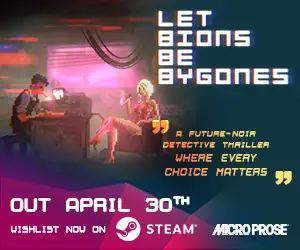Adventure Gamers - Forums
You are here: Home → Forum Home → Gaming → Adventure → Thread
DIFFERENT TYPES OF ADVENTURE GAME PUZZELS - Your thoughts?
Hi fellow AG’s. I was trying to sit down and think of the different kinds of puzzles that we end up solving when playing our lovely Adventure Games.
I came up with 5 different kinds of puzzles. I might have left something out.
It would be nice to hear your thoughts on the different kinds of puzzle types below, and pick your brain on how you think: a good puzzle should be created (referring to the different types below ), an example of a certain puzzle that you enjoyed and why, and which game it was from.
1. Inventory puzzles
Combine Object A with Object B
Not many games get this right, but I love games that only allow objects getting picked up when they are needed, or when you only can combine object A with B when it makes actually makes sense to do it. A few games that I can think of that made this work are Gabriel Knight 1, Broken Sword 1, and Still Life. Also I like if the needed object is lying around somewhere near where it’s needed to be combined with the other object. For instance picking up a crowbar somewhere close to a crate that needs to be opened. A bad way would be for the player to pick up the crowbar 10 screens away in another area of the game world, 3 hours before it is actually needed. For instance the Tex Murphy games is doing this right. (Most of the times)
2. Isolated puzzles
Slider puzzles, mathematical puzzles, etc.
I don’t really have anything good to say about these kinds of puzzles. I don’t like them at all, but they always seem to be around. I know that some people might like them.
3. Environment puzzles (not sure what to call these kind of puzzles, but I hope you get my point)
Example: To figure out a combination to a safe or how to open a door by getting information from the environment in the game (for instance reading a journal, solving a riddle, finding secondary information from conversations, etc.)
These types of puzzles are actually my favorites, as long as they can be solved with in-game information, and not by outside information/knowledge.
A textbook example on how NOT to design as puzzle like this is the cake baking puzzle in Still Life, where the player actually needs to know how to bake a certain recipe for real. There is no info in the game on how to do it, and the player needs to do a real Internet search, or actually know for real how to do it.
4. Dialogue puzzles
Open up new conversation trees by getting access to new information
A good example of a game that I think changed dialog puzzles to something interesting was Resonance.
5. Timed puzzles
Just like with slider puzzles, I really hate these kinds of events. I have nothing good to say about it. I am pretty sure that no Adventure Gamer like these. ![]()
Anticipating:The Devil’s Men
Recently played:GK1 Remake (4), A Golden Wake (3), Child of Light (4) Memento Mori 2 (4) Face Noir (3.5) Tex Murphy: Tesla Effect (4) Blackwell Epiphany (4.5),Broken Sword 5(4.5), The Shivah Remake (4.5), Monkey Island 2 Remake (4.5)
Top 10 Adventure Games:Tex Murphy: Pandora Directive, Gabriel Knight:The Beast Within, Broken Sword:Shadow of the Templars, Gabriel Knight:Sins of the Fathers, Indiana Jones and the Fate of Atlantis, Tex Murphy: Under a Killing Moon, Lost Horizon, Grim Fandago, The Longest Journey, Blackwell Epiphany
You are here: Home → Forum Home → Gaming → Adventure → Thread




